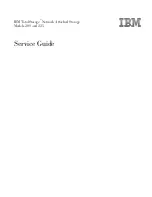
437
Syntax
route-policy
route-policy-name
{
deny
|
permit
}
node
node-number
undo route-policy
route-policy-name
[
deny
|
permit
] [
node
node-number
]
Default
No routing policy is created.
Views
System view
Predefined user roles
network-admin
Parameters
route-policy-name
: Specifies a name for the routing policy, a case-sensitive string of 1 to 63 characters.
deny
: Specifies the deny match mode for the routing policy node. If a route satisfies all the
if-match
clauses of the node, it is denied without matching against the next node. If not, it matches against the
next node.
permit
: Specifies the permit match mode for the routing policy node. If a route satisfies all the
if-match
clauses of the node, it is handled by the
apply
clauses of the node. If not, it matches against the next
node.
node
node-number
: Specifies a number for the node,
in the range of 0 to 65535. A node with a smaller
number is matched first.
Usage guidelines
Use a routing policy to filter routing information. A routing policy can contain several nodes and each
node comprises a set of
if-match
and
apply
clauses. The
if-match
clauses define the match criteria of the
node and the
apply
clauses define the actions to be taken on packets matching the criteria. The relation
between the
if-match
clauses of a node is logic AND: all the
if-match
clauses must be satisfied. The
relation between nodes is logic OR: a packet passing a node passes the routing policy.
Examples
# Create node 10 in
permit
mode for routing policy
policy1
and enter routing policy node view.
<Sysname> system-view
[Sysname] route-policy policy1 permit node 10
[Sysname-route-policy-policy1-10]
Related commands
display route-policy
IPv4 routing policy configuration commands
apply fast-reroute
Use
apply
fast-reroute
to set a backup link for fast route (FRR).
Use
undo apply
fast-reroute
to remove the configuration.
















































